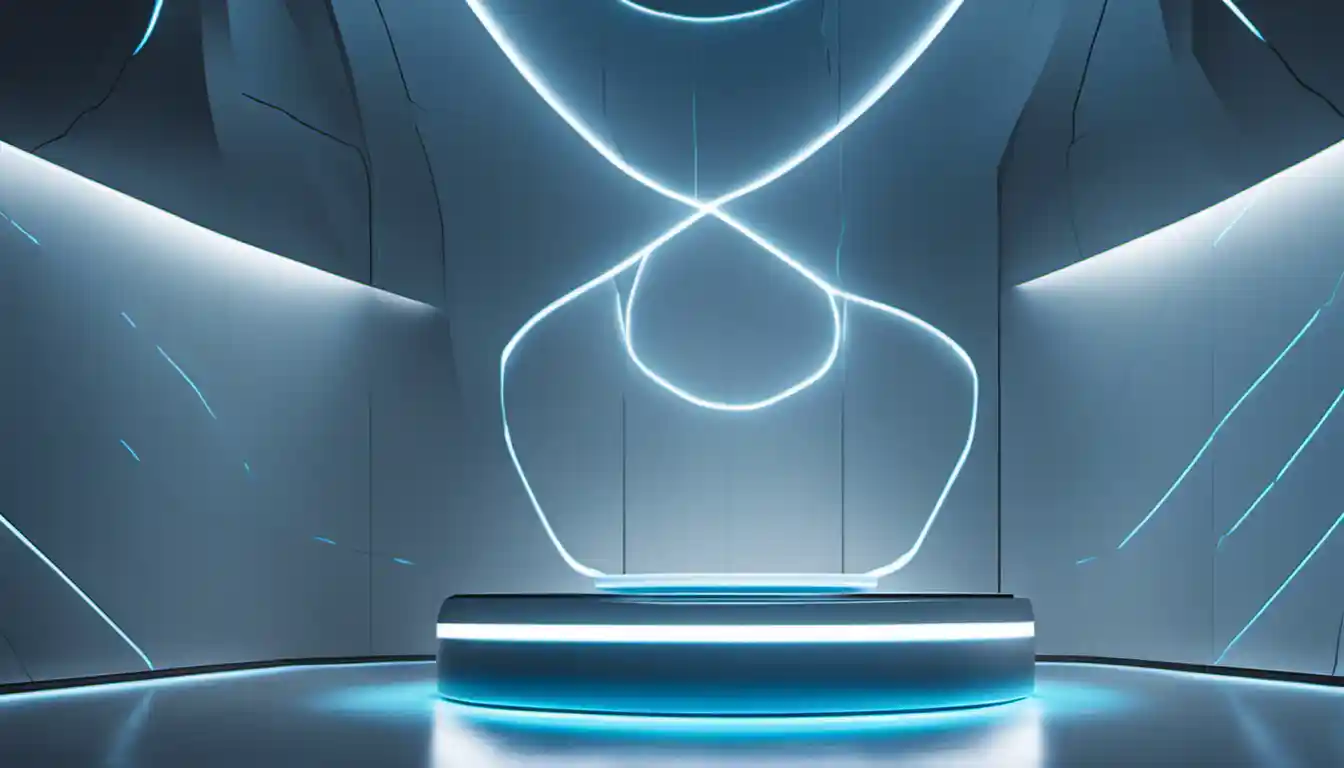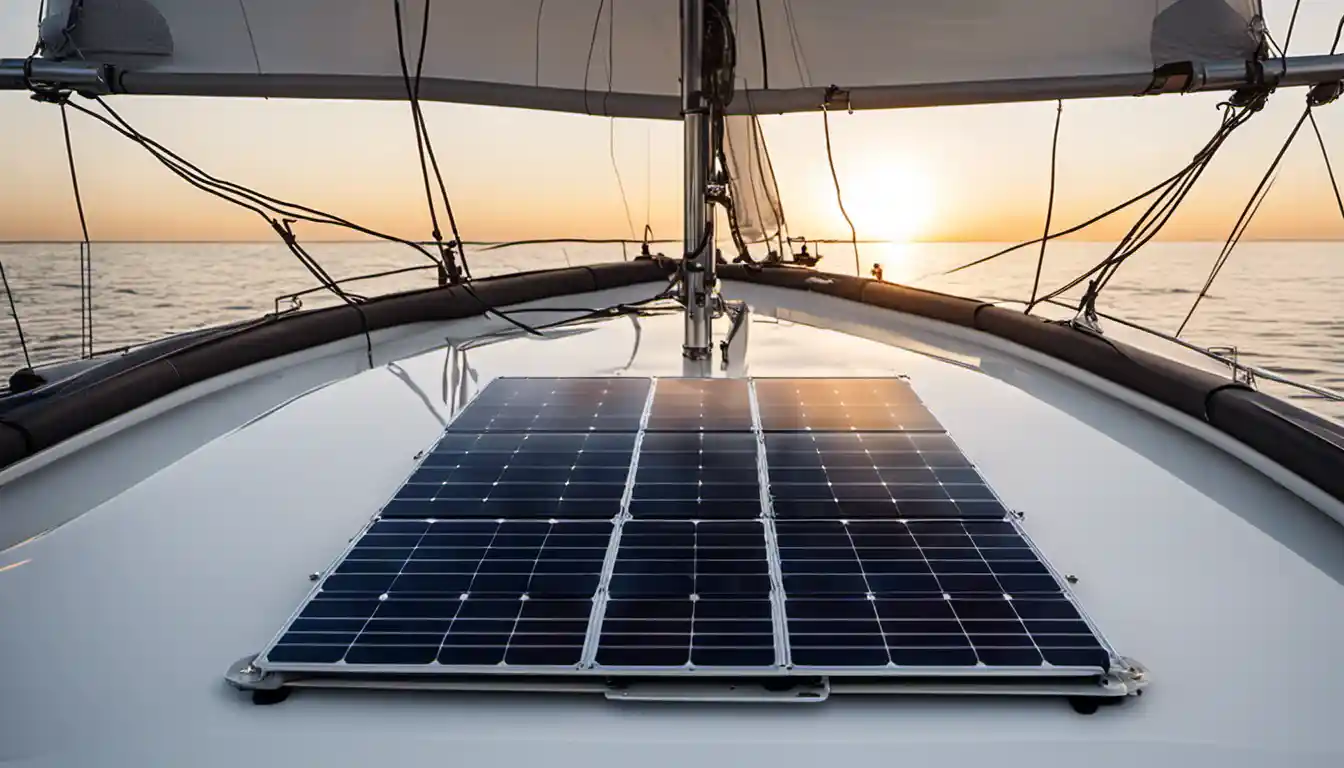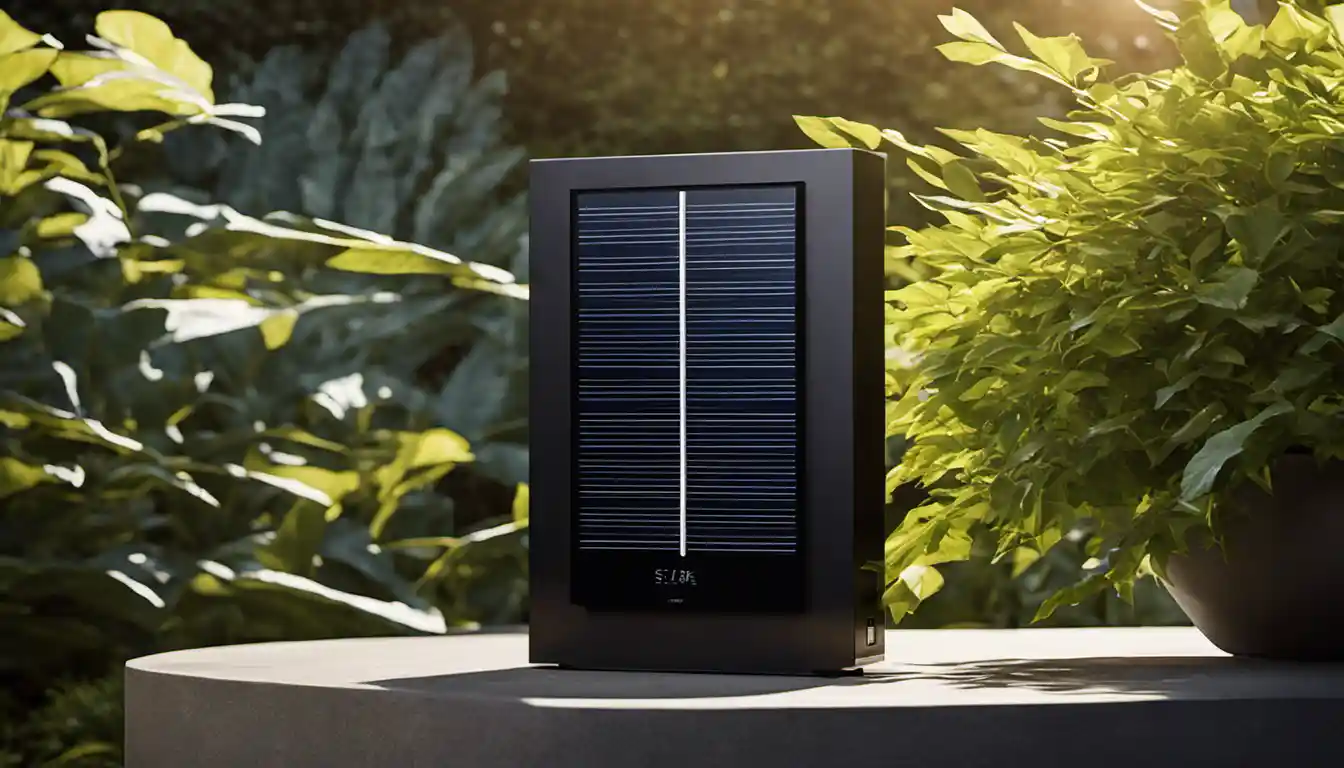Understanding Solar Battery Chargers for Boats
A solar battery charger for boats uses solar energy to power and charge boat batteries. These devices are particularly useful for marine applications due to their use of sustainable energy, ideal for long boat trips. They are available for purchase from various online retailers and marine equipment stores with different power outputs and sizes to fit different types of boats.
Basics of Solar Battery Chargers
At its essence, a solar battery charger for boats uses the energy from the sun, converts it into electrical power, and charges the batteries. The core of these devices is the solar panel, which contains photovoltaic cells. When the sunlight hits these cells, they create an electric field and generate electricity. The generated current is then directed to the connected battery.
See also: What is a Solar Charger? Understand its Functionality, Benefits and Uses
How Solar Battery Chargers Work
In terms of operation, these solar chargers work through a simple but effective process. Light particles (photons) from the sun hit the solar panel, causing its atoms to lose electrons. Those lost electrons form a direct current (DC) that travels through a connected charge controller and into the boat’s batteries, charging them in the process.
Importance of Solar Battery Chargers for Boats
As an experienced solar expert, I cannot overemphasize the importance of solar battery chargers for boats. They offer valuable benefits including: providing a renewable and reliable power source, reducing dependence on fossil fuels, saving costs in the long run, and minimizing maintenance needs due to their riding ability and water-resistant durability.
Key Features of High-quality Solar Battery Chargers
High-quality solar battery chargers for boats have distinct features. They are typically weatherproof, easy to mount and use, and come with built-in controllers to prevent overcharging. Moreover, they should have high conversion efficiency – this allows them to generate a broader power output even under low light conditions.
Types of Solar Battery Chargers for Boats
There are several types of solar battery chargers for boats you can choose from.
Trickle Charger
The trickle charger is designed to maintain a charge level that balances the natural battery discharge, hence its name. This type of charger takes a ‘trickle’ approach, charging the battery slowly to prevent damage from overcharging.
Maintainer Charger
A maintainer charger, or battery tender as it’s sometimes known, keeps your battery charged to optimal levels when not in use. It’s distinctive for its ability to switch to float mode once the battery is fully charged – ensuring it ‘maintains’ the full charge without overcharging the battery.
Intelligent Charger

By far the most advanced, the intelligent or smart charger, uses sophisticated technology to customize its charging approach based on real-time battery feedback. It modifies charging rates depending on the condition and ‘needs’ of your battery, effectively improving battery lifespan.
RFID Systems for Solar Battery Chargers on Boats
Radio Frequency Identification (RFID) plays a fundamental role in many modern solar battery chargers.
Understanding RFID Systems
RFID uses electromagnetic fields to identify and track tags attached to the objects automated, tracking, and control features in our solar charger system.
RFID Systems and Solar Battery Chargers
RFID technology has a particular synergy with solar battery chargers for boats. By enabling monitoring and control functions remotely, RFID systems make it possible to manage power consumption, turning systems on and off as needed, and troubleshooting issues even from afar.
Benefits of RFID Systems for Solar Battery Chargers
The benefits include more efficient power management, improved monitoring, and a greater level of control – all of which ultimately provide peace of mind by knowing your boat’s energy system is functioning optimally even when you are not physically present.
Solar Battery Charger Kits: Marine Solar Battery Charger Kit
A marine solar battery charger kit is your comprehensive solution to solar boat charging—it comes with everything you need for efficient solar charging.
Overview of Marine Solar Battery Charger Kits
This kit typically includes a solar panel, charge controller to prevent overcharging, and all the necessary cables and mounting hardware. It’s designed with the marine environment in mind, making it resistant to the harsh marine atmospheric conditions.
Components of Marine Solar Battery Charger Kits
As I already mentioned, these kits typically include: a solar panel, a solar controller, junction box, solar cables, and mounting hardware. They are user-friendly and designed for anyone to set up without needing professional help.
Installation and Usage of Marine Solar Battery Charger Kits

Installation guidance will vary depending on the specific kit, but in general, you will mount the solar panel, connect it to the controller, and then connect the controller to the batteries. Then you let the sun do its job! It’s that simple.
Benefits of Marine Solar Battery Charger Kits
The primary benefit of these kits is the convenience that comes with a one-stop solution. The kit is all-encompassing, which means you don’t have to worry about compatibility issues between components. And with everything been pre-designed for marine use, it stands to reason why the “marine solar battery charger kit” is becoming popular among boat owners.
Top Solar Battery Chargers for Boats
As someone with 20 years of experience in the solar energy field, I’ve come across many solar battery chargers. Here are my top recommendations:
Upgraded 7.5W-Solar-Battery-Trickle-Charger-Maintainer-12V, Schumacher SP-200 Solar Battery Charger and Maintainer – 2.4 Watt, 12V, Waterproof 12W 12V Solar Battery Charger & Maintainer Pro, OYMSAE 30 Watt 12 Volt Solar Panel Solar Trickle Charger 30W 12V Portable Battery Charger, Voltset 20W 12V Solar Panel Kit, Monocrystalline Solar Battery Trickle Charger Maintainer, SUNER POWER 12V Solar Battery Charger Maintainer, Waterproof 10W Solar Trickle Charger
Each of these chargers are affordable, efficient, and reliable.
Choosing the Right Solar Battery Charger for Boats
Factors to Consider When Buying a Solar Battery Charger
Key factors to consider include the size of your boat, your power requirements, your budget, the level of sunlight you will typically get, among other things.
Reading and Understanding Product Reviews
Product reviews can be very enlightening. However, remember to look for verified reviews from multiple reputable sources.
Verifying Product Specifications
It’s imperative to verify specifications like power output, water resistance, and importantly, whether the charger comes equipped with a charge controller.
Buying and Installing Solar Battery Chargers

Steps to Buy a Solar Battery Charger
- Determine your requirements.
- Research available chargers.
- Compare chargers based on your criteria.
- Purchase from a reputable source.
Procedure for Installing a Solar Boat Battery Charger
- Determine where to install.
- Mount the solar panel.
- Connect the charger to the controller (if it isn’t integrated).
- Connect the controller to the batteries.
Solar Battery Charger Maintenance Tips
Clean the panels regularly, check connections periodically and maintain your batteries for longer system life.
Additional Considerations
Safety Precautions with Solar Battery Chargers
Always follow instructions provided for installation and usage. Protect yourself with proper personal protective equipment.
Environmental Impact of Solar Battery Chargers
By using green energy, you’re not only benefiting personally but also contributing to the greater global effort to combat climate change.
Future Trends in Solar Boat Battery Charging Technology
With the rise in technology and a focus on renewable energy, we can expect improvements in efficiency, size, and control systems. As an experienced solar expert, I wager we might even see solar batteries integrated into the boat materials in future!
That’s my guide to solar battery chargers for boats. I hope it enlightened you and helps you better make decisions on powering your boat. Happy boating!



